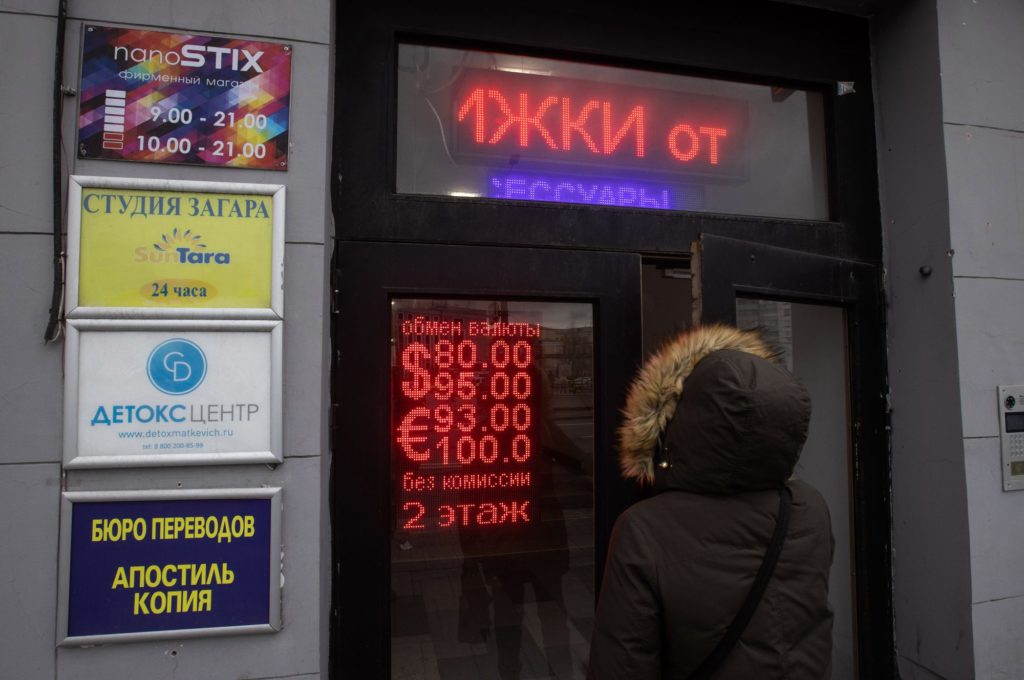(Bloomberg) — The U.S. is seriously considering whether to seek Russia’s expulsion from the SWIFT financial messaging system over the Ukraine invasion as allies in Europe warm to the idea of imposing a penalty that seemed unlikely just days ago, according to people familiar with the matter.
Biden administration officials are now debating whether to push for a directive from the European Union needed to ban Russia from SWIFT, though a U.S.
and EU decision is not imminent, according to the people. Officials are discussing the matter with the Federal Reserve, which sits on SWIFT’s oversight body, two of the people said. Another person said talks have commenced with the European Commission.
The discussions by the U.S.
mark a change in course after President Joe Biden said he was holding off because European allies had voiced concerns over the risk such a move posed to their economies.
But as Russian President Vladimir Putin continues a full-scale invasion of Ukraine that’s now advancing on Kyiv, officials in the U.S.
and Europe are seeking tougher consequences against Moscow on top of the sanctions they’ve already unveiled.
All of the people discussed the matter on condition of anonymity to describe private deliberations.
The U.S. National Security Council press office and Fed spokeswoman Michelle Smith declined to comment.
The chances of a move on SWIFT have been a moving target, and the likelihood remains unclear.
While previously a faint prospect, the measure has grown more likely in the past few days, the people said, fueling the belief that it now could happen, though they stopped short of predicting it would.
Western leaders, wary of sending troops into Ukraine, had so far avoided denying access to SWIFT.
However, the U.K., Canada and the Netherlands are now publicly advocating for it.
The U.S. does not have the power to unilaterally block Russia from SWIFT. The organization will only sever access if the EU passed sanctions against the targeted entity or country.
In the 27-nation EU, decisions of this kind require unanimity.
The tide there also is now turning in favor of a SWIFT expulsion. Italy, which had been on the fence, has now come out in favor Germany remains the main holdout.
At SWIFT, the management is growing less resistant to the idea of banning Russia, but the discussions are still ongoing, two of the people involved in deliberations said.
A SWIFT spokesman said that any decision to sanction individual nations rests with the government bodies that oversee it, noting that the organization itself cannot take such action on it’s own.
SWIFT — which stands for the Society for Worldwide Interbank Financial Telecommunication — is overseen by the National Bank of Belgium and central bank representatives from the U.S., U.K., EU, Japan, Russia, China and others.
It delivers secure messages among more than 11,000 financial institutions and companies, in over 200 countries and territories.
SWIFT has blocked access to a nation just once in its history: In 2012, with the help of an EU directive, it blocked Iran as part of a range of measures aimed at containing the Islamic Republic’s nuclear program.
Wall Street banks have pushed back against making a similar move against Russia, arguing that it would trigger higher inflation, push Russia closer to China and potentially shield suspect financial transactions from scrutiny by the West.
Opponents also warn that blocking Russia from the global payments system risks encouraging the development of a SWIFT alternative that could eventually undermine the supremacy of the U.S.
dollar.
“Removing Russia from SWIFT is a significant step but no magic bullet,” said Josh Lipsky, director of the Atlantic Council’s GeoEconomics Center. “There are still alternative ways for Russian banks to operate so it’s important to keep focused on the money, not the messaging system.”
(Adds comment from Swift and latest from Italy.)
More stories like this are available on bloomberg.com
©2022 Bloomberg L.P.











